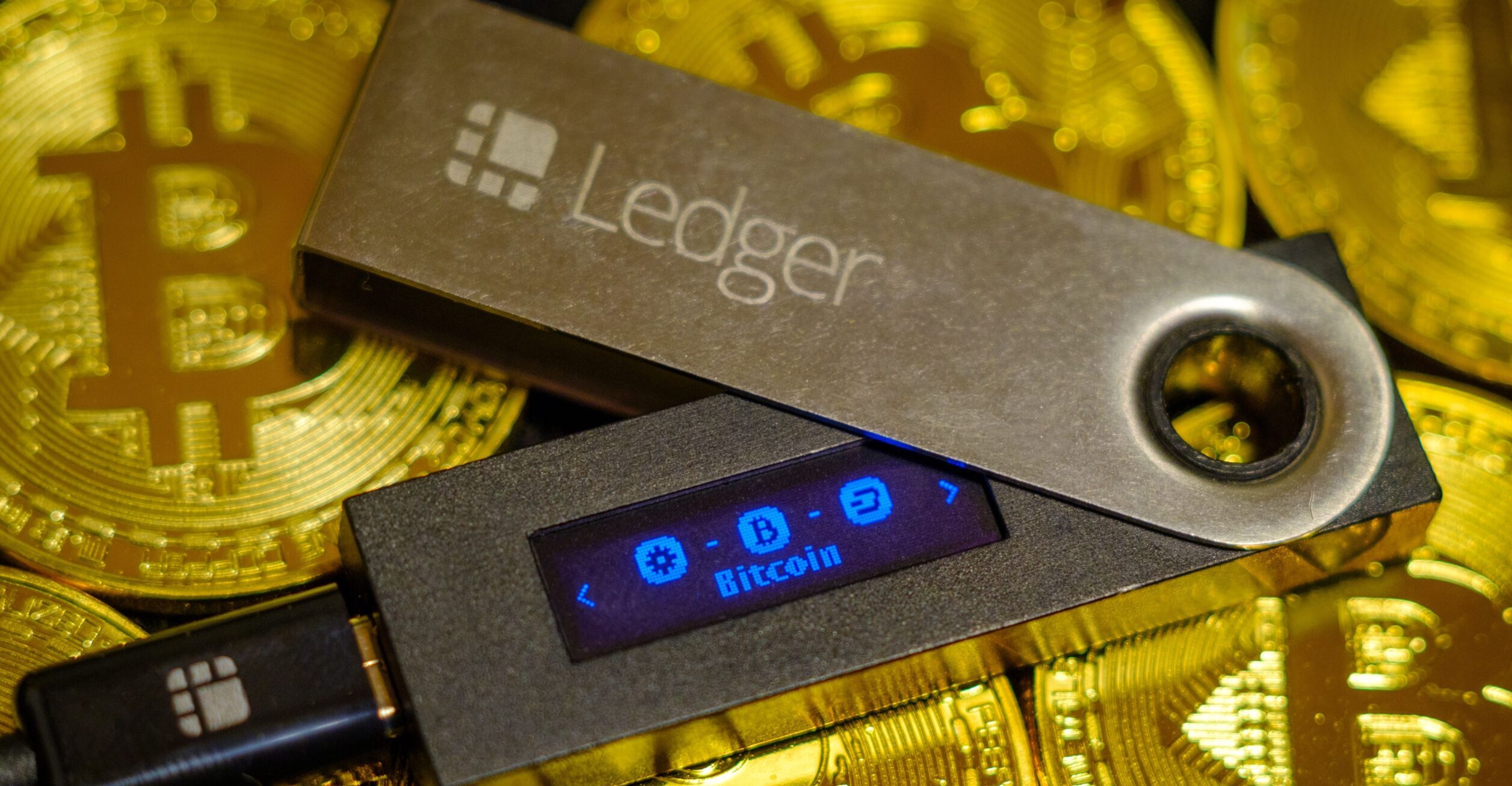Best Bitcoin Hardware Wallets for USA & UK in 2025

The increasing adoption of Bitcoin as both a store of value and medium of exchange has made secure storage solutions more critical than ever. Hardware wallets represent the gold standard for Bitcoin security, providing cold storage protection that keeps private keys offline and out of reach from potential cyber threats.
For users in the United States and the United Kingdom, selecting the right Bitcoin hardware wallet involves considering factors such as regulatory compliance, shipping availability, customer support, and integration with local cryptocurrency exchanges. This comprehensive guide examines the best hardware wallet options available to Bitcoin holders in the United States and the United Kingdom in 2025.
Hardware wallets have proven their worth through numerous high-profile exchange hacks and security breaches, where users who stored their Bitcoin on centralized platforms lost their funds while hardware wallet users remained protected. Bitcoin Dominance Chart, The principle of “not your keys, not your coins” has never been more relevant in today’s evolving cryptocurrency landscape.
Bitcoin Hardware Wallet Technology
How Hardware Wallets Secure Bitcoin
Hardware wallets function as specialized computing devices designed exclusively for cryptocurrency storage and transaction signing. These devices generate and store private keys within secure elements, preventing exposure to internet-connected computers that may be compromised by malware or hackers.
The secure element represents a tamper-resistant hardware component that performs cryptographic operations in an isolated environment. When you initiate a Bitcoin transaction, the hardware wallet signs the transaction internally without exposing your private keys to the connected computer or smartphone. This air-gapped approach ensures that even if your computer is infected with malware, your Bitcoin remains secure.
Multi-signature capabilities in modern hardware wallets provide an additional layer of security by requiring multiple devices or signatures to authorize transactions. This feature proves particularly valuable for institutional users or individuals managing substantial Bitcoin holdings who require enhanced security protocols.
Key Security Features to Consider
Secure boot processes ensure that only authentic firmware runs on your hardware wallet, preventing attackers from installing malicious software. Leading manufacturers implement cryptographic verification of firmware integrity during device startup, maintaining security even if physical access is compromised.
PIN protection and passphrase support create multiple authentication layers, making unauthorized access extremely difficult even if the device is stolen. Advanced models incorporate exponential delay mechanisms that increase wait times between incorrect PIN attempts, rendering brute force attacks impractical.
Backup and recovery mechanisms typically involve BIP39 mnemonic seed phrases, which allow for complete wallet restoration on compatible devices. This standardization ensures that your Bitcoin remains accessible even if your original hardware wallet is damaged or destroyed.
Comprehensive Hardware Wallet Reviews

Ledger Nano X: Premium Multi-Currency Solution
The Ledger Nano X is one of the most popular hardware wallets globally, offering robust security features and extensive support for various cryptocurrencies. This device stores private keys on a certified secure element (CC EAL5+) and supports over 5,500 cryptocurrencies, including Bitcoin and various alternative cryptocurrencies (altcoins).
Key Features and Specifications:
- Bluetooth connectivity enables mobile device pairing for convenient transaction signing
- 100-application storage capacity allows managing multiple cryptocurrencies simultaneously
- Large OLED display provides clear transaction verification and device navigation
- USB-C connectivity ensures compatibility with modern computers and devices
- Battery life extends up to 8 hours for wireless operations
The Ledger Live companion software provides an intuitive interface for portfolio management, transaction history, and firmware updates. The application supports direct integration with popular cryptocurrency exchanges and decentralized finance (DeFi) protocols, making it suitable for both beginners and advanced users.
Security audits by independent firms validate the Nano X’s cryptographic implementations and hardware design. The device has withstood numerous penetration testing attempts and maintains an excellent security track record since its launch in 2019.
Pricing and Availability:
- Retail price: $149 USD / £129 GBP
- Available through the official Ledger website and authorized retailers
- Ships to USA and the UK with standard and expedited shipping options
- Two-year warranty coverage includes hardware defects and manufacturing issues
Trezor Model T: Open-Source Security Leader
Trezor Model T represents the flagship product from SatoshiLabs, the company that created the first Bitcoin hardware wallet in 2014. This device emphasizes open-source development and transparency, enabling security researchers to audit its code and hardware design continuously.
Advanced Security Architecture:
- ARM Cortex-M4 processor with custom security implementations
- Color touchscreen interface eliminates the need for physical buttons
- Advanced cryptographic algorithms including Ed25519 and secp256k1 curves
- Shamir Backup (SLIP-39) support enables advanced recovery schemes
- U2F and FIDO2 authentication for secure website logins
The Model T’s open-source philosophy extends to its firmware, bootloader, and hardware schematics, providing unprecedented transparency in the hardware wallet industry. This openness allows independent verification of security claims and enables community-driven improvements.
Ecosystem Integration:
- Trezor Suite desktop application provides comprehensive portfolio management
- Third-party wallet integration includes Electrum, Wasabi, and MyEtherWallet
- Browser extension support enables direct interaction with web-based applications
- Command-line interface (CLI) tools for advanced users and developers
Pricing and Regional Availability:
- Retail price: $219 USD / £180 GBP
- Direct sales through Trezor.io with international shipping
- Authorized reseller network includes major electronics retailers
- A three-year warranty covers hardware defects and performance issues
Coldcard Mk4: Bitcoin-Only Fortress
Coldcard Mk4 targets Bitcoin maximalists and security-conscious users who prioritize single-cryptocurrency optimization over multi-asset support. Developed by Coinkite, this device incorporates numerous advanced security features specifically designed for Bitcoin storage and management.
Bitcoin-Focused Features:
- Air-gapped operation through microSD card and QR code transactions
- Genuine Secure Element (ATECC608A) provides hardware-level key protection
- Brick Me PIN feature completely destroys the device if entered
- Advanced multi-signature wallet creation and management
- Paper wallet import and backup verification tools
The device supports truly offline transaction signing through PSBTs (Partially Signed Bitcoin Transactions), enabling complete air-gapped operations without ever connecting to internet-enabled devices. This feature appeals to users who require maximum security for their large Bitcoin holdings.
Technical Specifications:
- ARM Cortex-M4 microcontroller with dedicated cryptographic co-processor
- OLED display with navigation buttons for menu systems
- microSD card slot for firmware updates and transaction data
- USB port for power and optional data connectivity
- Stainless steel case provides physical durability and tamper evidence
Availability for USA and UK Users:
- Retail price: $147 USD / £120 GBP
- Available through Coinkite direct sales and select retailers
- International shipping to both the USA and the UK regions
- One-year limited warranty covers manufacturing defects
KeepKey: User-Friendly Design Focus
KeepKey emphasizes simplicity and ease of use while maintaining strong security standards for Bitcoin storage. Originally developed by KeepKey LLC and later acquired by ShapeShift, this device features a large display and an intuitive interface designed for mainstream adoption.
Design and Usability Features:
- Large OLED display (256×64 pixels) provides excellent transaction visibility
- Single confirmation button simplifies the transaction approval process
- Polished chrome and plastic construction offer premium aesthetics
- Standard USB connectivity ensures broad device compatibility
- Recovery seed generation follows BIP39 and BIP44 standards
The ShapeShift integration offers seamless cryptocurrency exchange services directly through the KeepKey interface; however, users should assess the security implications of integrated exchange features against their personal security requirements.
Software Ecosystem:
- KeepKey desktop application handles basic wallet functions
- Third-party support includes Electrum and MyEtherWallet integration
- Chrome extension enables web-based cryptocurrency applications
- Firmware updates are delivered through a desktop application
Market Position and Pricing:
- Retail price: $49 USD / £39 GBP
- Significant cost advantage over premium competitors
- Available through ShapeShift and authorized electronics retailers
- Limited warranty covers hardware defects for one year
Regional Considerations for USA and UK Users
Regulatory Compliance and Legal Framework
United States cryptocurrency regulations continue to evolve under the supervision of various federal agencies, including the Securities and Exchange Commission (SEC), the Commodity Futures Trading Commission (CFTC), and the Financial Crimes Enforcement Network (FinCEN). Hardware wallets typically fall outside direct regulatory oversight, as they serve as storage devices rather than financial services.
The UK’s Financial Conduct Authority (FCA) has established clear guidelines for cryptocurrency activities, with hardware wallets remaining unregulated due to their classification as consumer electronic devices. However, UK users should maintain awareness of tax reporting requirements for cryptocurrency gains and losses.
Import duties and customs considerations may apply to hardware wallet purchases from international manufacturers. USA users typically face minimal import fees for personal-use electronic devices, while UK users may encounter VAT charges on purchases from non-EU manufacturers.
Shipping and Customer Support
Ledger maintains distribution centers in both the USA (California) and the UK (London), ensuring fast delivery times and reduced shipping costs for customers in both regions. The company offers customer support in English, with dedicated teams that are familiar with regional requirements.
Trezor ships internationally from the Czech Republic facilities, with typical delivery times of 5-10 business days to USA and UK addresses. Customer support operates in multiple languages, including English, with comprehensive documentation and community forums.
Coldcard ships from Canada to both USA and UK customers, with delivery times varying based on customs processing. The company provides technical support through email and maintains active community forums for user assistance.
KeepKey leverages ShapeShift’s USA-based operations for North American distribution, while partnering with European distributors to access the UK market. Customer support quality has varied following corporate changes and acquisitions.
Advanced Security Practices and Best Practices
Initial Setup and Configuration
Hardware wallet initialization requires careful attention to security protocols from the first power-on. Generate recovery seeds only on the device itself, never using computer-generated or pre-written phrases that could be compromised. Write recovery phrases on the provided cards using a pen (never a pencil) and store them in secure, separate locations.
Firmware verification ensures that your device runs authentic software from the manufacturer. Download firmware only from official sources and verify cryptographic signatures when possible. Enable auto-update features cautiously, as some users prefer manual firmware updates for enhanced security control.
PIN selection should follow strong password principles while remaining memorable for daily use. Avoid obvious patterns, birthdays, or repeated digits that could be easily guessed. Consider the trade-off between security and usability when setting PIN complexity.
Operational Security Protocols
Transaction verification represents the most critical security practice for hardware wallet users. Always verify the receiving addresses displayed on the device before confirming transactions, as malware may modify the addresses shown on computer screens. Cross-reference transaction amounts and fees displayed on both the device and the computer interface.
Recovery phrase security extends beyond initial setup to ongoing protection and periodic verification. Test recovery procedures with small amounts to ensure familiarity with the process. Consider advanced backup methods such as Shamir Secret Sharing for high-value holdings.
Multi-signature configurations offer an additional layer of security for substantial Bitcoin holdings. Configure 2-of-3 or 3-of-5 multi-signature wallets using multiple hardware devices to eliminate single points of failure. This approach requires careful planning and documentation of the setup process.
Common Security Mistakes to Avoid
Phishing attacks targeting hardware wallet users often involve fake recovery phrase entry websites or malicious software claiming to be official wallet applications. Never enter recovery phrases into any digital device or website, regardless of apparent legitimacy.
Supply chain attacks remain a theoretical but serious concern for hardware wallet security. Purchase devices only from official manufacturers or authorized retailers, never from third-party marketplaces or individuals. Inspect packaging for signs of tampering before use.
Firmware modification attacks could potentially compromise device security if users install unauthorized firmware or modifications. Stick to official firmware releases and avoid experimental or community-modified software unless you fully understand the security implications.
Comparative Analysis and Selection Guide

Feature Comparison Matrix
Security Features:
- Ledger Nano X: Certified Secure Element (CC EAL5+), proprietary OS
- Trezor Model T: Open-source firmware, custom security implementation
- Coldcard Mk4: Bitcoin-optimized security, air-gapped operations
- KeepKey: Standard security practices, simpler implementation
User Experience:
- Ledger Nano X: Bluetooth connectivity, mobile app integration
- Trezor Model T: Color touchscreen, intuitive interface
- Coldcard Mk4: Text-based interface, advanced user focus
- KeepKey: Large display, simplified operation
Cryptocurrency Support:
- Ledger Nano X: 5,500+ cryptocurrencies and tokens
- Trezor Model T: 1,600+ cryptocurrencies and tokens
- Coldcard Mk4: Bitcoin-only focus
- KeepKey: 40+ major cryptocurrencies
Price-Performance Analysis
Budget-conscious users may find KeepKey attractive for basic Bitcoin storage needs, though the device lacks advanced security features and extensive cryptocurrency support. The significant price advantage comes with trade-offs in build quality and feature set.
Mid-range options include Coldcard Mk4 for Bitcoin-focused users seeking maximum security, and Ledger Nano X for users wanting multi-cryptocurrency support with premium features. Both devices offer excellent security-to-price ratios within their respective categories.
The Trezor Model T boasts premium positioning, commanding higher prices due to its open-source transparency and advanced features. Users prioritizing auditability and community development may find the premium worthwhile.
Integration with Popular Services and Exchanges
Exchange Compatibility
Coinbase Pro and Coinbase Advanced Trade support direct integration with hardware wallets for enhanced security during trading activities. Users can store funds on hardware wallets while maintaining the ability to trade efficiently when market opportunities arise.
Binance offers hardware wallet integration through its desktop application, allowing users to maintain custody of their Bitcoin while accessing advanced trading features. The integration supports multiple hardware wallet brands with varying feature sets.
Kraken provides comprehensive hardware wallet support through its web interface and mobile applications. The exchange emphasizes security best practices and provides detailed guides for integrating hardware wallets.
Gemini supports hardware wallet connectivity for both individual and institutional users, with particular emphasis on regulatory compliance and security standards. The platform’s focus on regulation makes it attractive to USA users seeking compliant trading solutions.
DeFi and Web3 Integration
The MetaMask browser extension supports hardware wallet integration for Ethereum-based DeFi protocols, although Bitcoin-specific DeFi remains limited. Users interested in Bitcoin-backed DeFi may need to use wrapped Bitcoin (WBTC) solutions.
The WalletConnect protocol enables seamless integration with numerous DeFi applications and decentralized exchanges, allowing for hardware wallet support. 8 Best Crypto Wallets, Support varies by hardware wallet manufacturer and specific application requirements.
Lightning Network integration represents an emerging area for Bitcoin hardware wallets, with some manufacturers beginning to support second-layer scaling solutions. This development could significantly impact Bitcoin’s utility for daily transactions.
Summary
Biometric authentication integration represents a potential future enhancement for the security of hardware wallets. Fingerprint sensors and other biometric technologies could provide additional authentication layers without compromising the device’s security model.
Quantum-resistant cryptography becomes increasingly important as quantum computing advances. Hardware wallet manufacturers are beginning to evaluate post-quantum cryptographic algorithms for future device generations.
Secure wireless communication protocols beyond Bluetooth may emerge to address current limitations and security concerns. Technologies such as ultra-wideband (UWB) or custom radio protocols can enhance device connectivity while maintaining security.
FAQs
Q1. Why should I use a Bitcoin hardware wallet instead of funds on an exchange?
Ans: Hardware wallets keep your private keys offline, protecting against hacks—unlike exchanges, which are frequent targets for cyber attacks.
Q2. Which Bitcoin hardware wallet is best for users in the USA or UK in 2025?
Ans: Ledger Nano X and Trezor Model T are top choices due to regional availability, strong security, and support for local exchanges.
